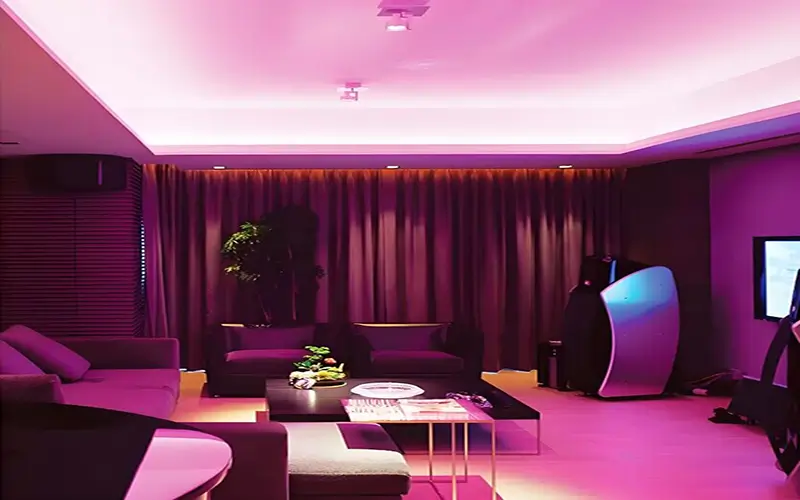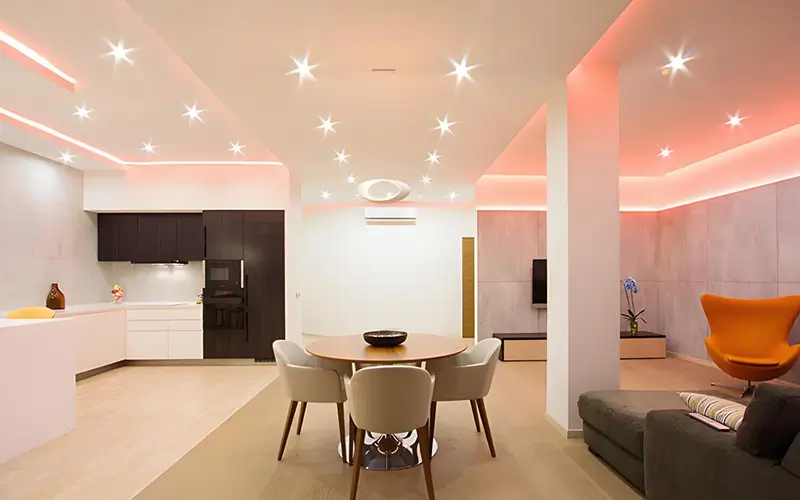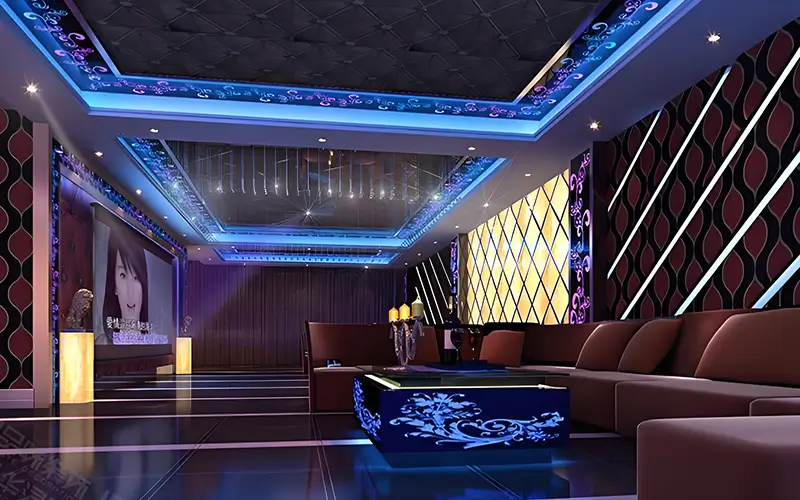
In the field of LED lighting, RGBIC and RGBWW represent two advanced LED technologies. Each has unique features and advantages but also has its own shortcomings. Understanding the differences between RGBIC vs. RGBWW can help you choose the lighting solution that suits your needs.
What is RGBIC?
RGBIC stands for independently controlled red, green, and blue RGB lighting, but each LED on this LED strip displays a different color simultaneously.
It is achieved through a built-in IC (integrated circuit) chip that controls and programs each LED segment independently, allowing dynamic color displays and complex lighting patterns.

Why Choose the RGBIC?
- Dynamic Lighting Effects: RGBIC light strips can display multiple colors simultaneously, enabling gradient effects, flowing colors, and intricate lighting patterns.
- Versatility: Ideal for environments that demand dynamic and vibrant lighting, such as gaming setups, TV backlighting, and holiday decorations.
- Customization Support: Offers extensive customization options, allowing for a unique and personalized lighting experience tailored to individual preferences.
What is RGBWW?
RGBWW stands for Red, Green, Blue, Warm White, and Cool White, incorporating five chips in a single lamp bead. This technology blends RGB LEDs with additional LEDs to create adjustable white light, enabling users to control the color temperature from warm white to cool white.
RGBWW LED strips offer a combination of various color temperatures and colors along with adjustable white light, making them a more versatile lighting solution.

Why choose RGBWW?
- Tunable White: Precisely control white light temperature and switch naturally between warm, neutral, and cool white.
- Full-Color Spectrum: Combines the vivid colors of RGB with the practicality of tunable white, making it suitable for both ambient and task lighting.
- Versatility: Ideal for environments that require both color and white lighting.
Key Differences Between RGBIC vs. RGBWW
| Feature | RGBIC | RGBWW |
| Colors | Red, Green, Blue with Individual IC | Red, Green, Blue, Warm White, Cool White |
| Function | Dynamic multi-color complex lighting effects | Adjustable white light and colorful colors |
| Color change | Generate multiple colors simultaneously | Multiple colors plus adjustable white |
| Light Effect | Lighting effects Gradient effects, complex patterns can be programmed | Mixed colors and multiple color temperatures |
| Applications | Gaming setups, TV backlighting, activity decorations | Residential and commercial lighting |
| Customization | Support custom for dynamic lighting scenes | Customizable color temperature and white light |
| Brightness Control | Individual control over each color | Control over both color and brightness |
| Control | Supports individual control over each LED | Allows control over the warm to cool white light |
Conclusion
RGBIC vs. RGBWW mainly depends on your lighting purpose and personal preference. If you need dynamic lighting effects with independent color control, RGBIC is the ideal choice. On the other hand, if you need a versatile lighting solution that can provide both vivid colors and tunable white light, RGBWW is a better choice.
FAQs
It depends on whether it is indoor or outdoor ambient lighting. Ambient lighting is mainly to improve visibility and create atmosphere. We recommend that RGBCCT is very suitable.
Yes, RGBIC lights can display multiple colors at the same time and support self-transformation. It can create effects such as gradients and flowing colors, which are very suitable for game settings and decorative lighting.
Yes, RGBIC lights are very suitable for TV backlighting. Because they can provide dynamic and bright colors, the flowing lights can make users immersive and enhance the viewing experience.
RGBIC lights are best suited for applications that require dynamic lighting effects, such as events and stage planning. Then there are game settings, decorative lighting, TV backlighting, and holiday decorations.
